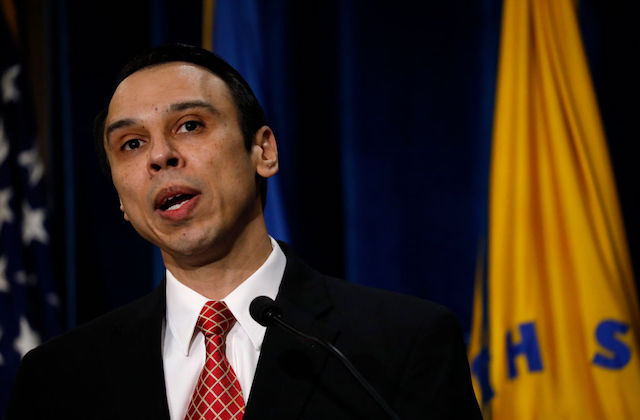Last Thursday (January 18), the Department of Health and Human services announced they were reorganizing the Office of Civil Rights (OCR) to include a new Conscience and Religious Freedom division. The restructure also includes placing an emphasis on enforcement of conscience and religious freedom laws alongside civil rights in all descriptions of the work of the OCR, demonstrating a fundamental shift in the work of the department. The first act of the new office was to release 200 pages of proposed rules, entitled ‘Protecting Statutory Conscience Rights in Health Care,’ regarding religious freedom protections for health care providers.
Religious freedom laws broadly seek to protect people from being sued if they refuse service to a person because that service would violate their religious beliefs. The constitutionality of these protections are at issue in the Masterpiece Cakeshop vs. Colorado Civil Rights Commission case, which is currently before the Supreme Court, and takes up the question of whether a baker can refuse to make a wedding cake for an LGBT couple. But these religious freedom protections at HHS apply specifically to protecting health care providers from being sued or reprimanded at work if they refuse to engage in certain medical treatment, like providing an abortion, prescribing contraception, or even treating an LGBT person because of their religious beliefs.
HHS Acting Secretary Eric Hargan, quoted in the Washington Post, says, “President Trump promised the American people that his administration would vigorously uphold the rights of conscience and religious freedom. That promise is being kept today. The Founding Fathers knew that a nation that respects conscience rights is more diverse and more free, and OCR’s new division will help make that vision a reality.”
Advocates fear that this shift at HHS, and the proposed rules, which build off of actions taken by the George W. Bush administration, will allow health care providers a broad license to discriminate. In a press release, Dawn Laguens, Executive Vice President of Planned Parenthood Federation of America, explains:
This broad rule could mean that a woman is denied the ability to access an abortion, even though she should legally be able to do so. A patient could be denied birth control simply because their pharmacist or doctor doesn’t believe they should be able to take it. This rule could mean that a family is unable to get quality medical care for their child because the parents happen to be lesbians, or that a transgender person is unable to get basic medical care because of their gender identity. Patients’ health care will suffer if this becomes law.
For communities already facing barriers to care and discrimination at the doctor’s office, these rules add another potential set of challenges. Sung Yeon Chimorrow, executive director of the National Asian Pacific American Women’s Forum, explains:
The Asian American and Pacific Islander (AAPI) community, who already face heightened barriers to health care access, will be subjected to even further discrimination—especially transgender and gender non-conforming AAPI people. Nearly a fourth of AAPI respondents to the 2015 US Transgender Survey said they avoided going to a health care provider because of fear of discrimination. This office will only amplify the culture of fear.
Lambda Legal released a lengthy explanation of the legal arguments against the proposed rules, concluding:
The "Conscience and Religious Freedom Division” to be created within HHS’s Office of Civil Rights is explicitly intended to facilitate refusals of medically necessary health care in the name of religion. The potential consequences for patients will range from life-endangerment to harassment that deters accessing of care, which harms both individuals and public health.
The new office at HHS is already a reality, and their website now features a Muslim woman provider in a hijab on their homepage. By law, there is a public comment period for the proposed rules before an official and final rule can be released. But legal advocacy groups like Lambda Legal and the ACLU are already preparing to take this fight to court. From Politico:
Patient groups and legal organizations vowed to challenge HHS if providers are allowed to deny care based on criteria like a patient’s gender or gender expression. "Should the administration choose to move forward to implement a discriminatory policy, we will see them in court," Louise Melling, of the American Civil Liberties Union, said in a statement.
